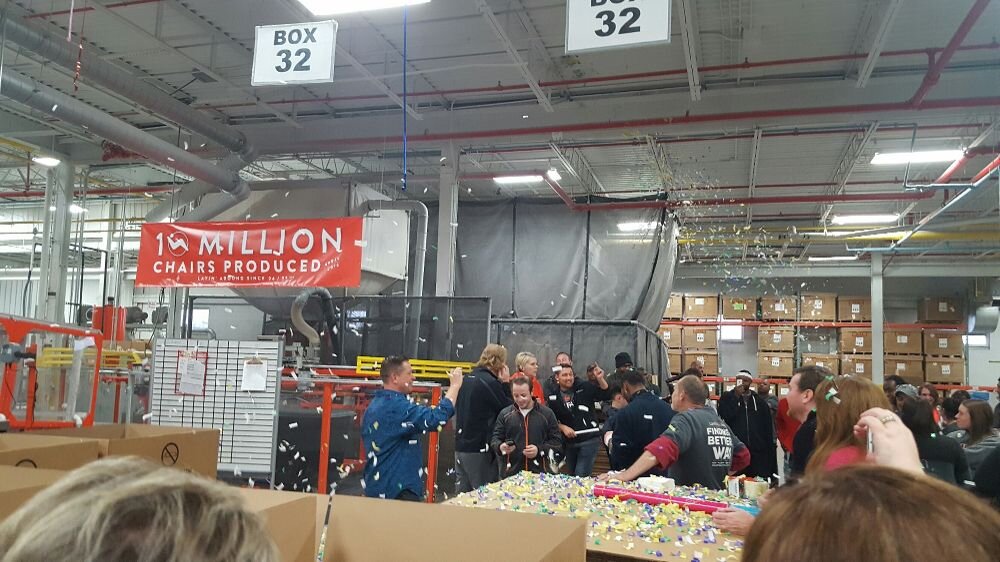Comfort Research Comfortable With Zero Waste
March 12, 2023
Years back, when a member of its cleaning team began taking materials home to recycle—reducing trash from six bags to one—Comfort Research began its own recycling effort. Today, the company is a zero-waste-to-landfill operation that serves as an example of how manufacturers can do sustainability right. Its plants manufacturing products like bean bag chairs and pool floats in Michigan and Tennessee are Zero Landfill certified.
Recognized as one of “101 Best and Brightest Sustainable Companies™” in the nation in 2015 and 2016, Comfort Research received the WMSBF Circular Economy Award in 2017. The sustainability measures that earned these accolades greatly surpass a simple recycling program.
On the production site, strategically placed recycling bins collect 100% of internally generated production waste; recycle 100% of all shipping skids, cardboard, foam, and foam beans; and reclaim 97% of all office waste—food, paper, metal and electronics. All told, the 397,916 pounds of recycled plastics, cardboard, eps and metal weigh more than 89,000 of its Big Joe Dorm chairs. In addition, Comfort Research has turned 42,000 pounds of organic compost into rich fertile soil and processed 150,000 liters of water via its water fill stations.
Its UltimaX foam beans are manufactured from 80% post-consumer recycled content. The 100% post-consumer shredded polyethene foam in its Fuf seating line is 100% recyclable. The company transforms recycled soda bottles into pet beds and patio furniture cushions.
Comfort Research enlists employees, suppliers, communities, and commercial recyclers to meet its sustainability goals.

When searching for a new home, Comfort Research chose to renovate an existing building on Grand Rapids northwest side to maximize land usage, improve the property’s quality, and reduce use of new materials. Fluorescent lighting and Energy Star™ appliances reduce its facilities’ energy consumption.
Comfort Research educates its employees and peers about how to live more sustainably. Videos instruct temps and new employees how to recycle on the job. Employees are even encouraged to recycle household waste at work. The company’s Green Team follows up when waste is sorted incorrectly—and developed easy-to-read labels that tell what materials go in which bins. Other businesses are welcome to download the labels from the Comfort Research website.
Forging partnerships with green suppliers as well as municipal and commercial recyclers are additional strategies that have led the company to sustainability success. As the company website puts it, “… we’re constantly looking for ways to further reduce our environmental impact. From our products and packaging methods to people and buildings, we believe sustainability is just as important to us as building high-quality products. We are constantly seeking new and more effective ways to conserve natural resources, reduce waste, minimize pollution, and preserve the earth for generations to come.”
